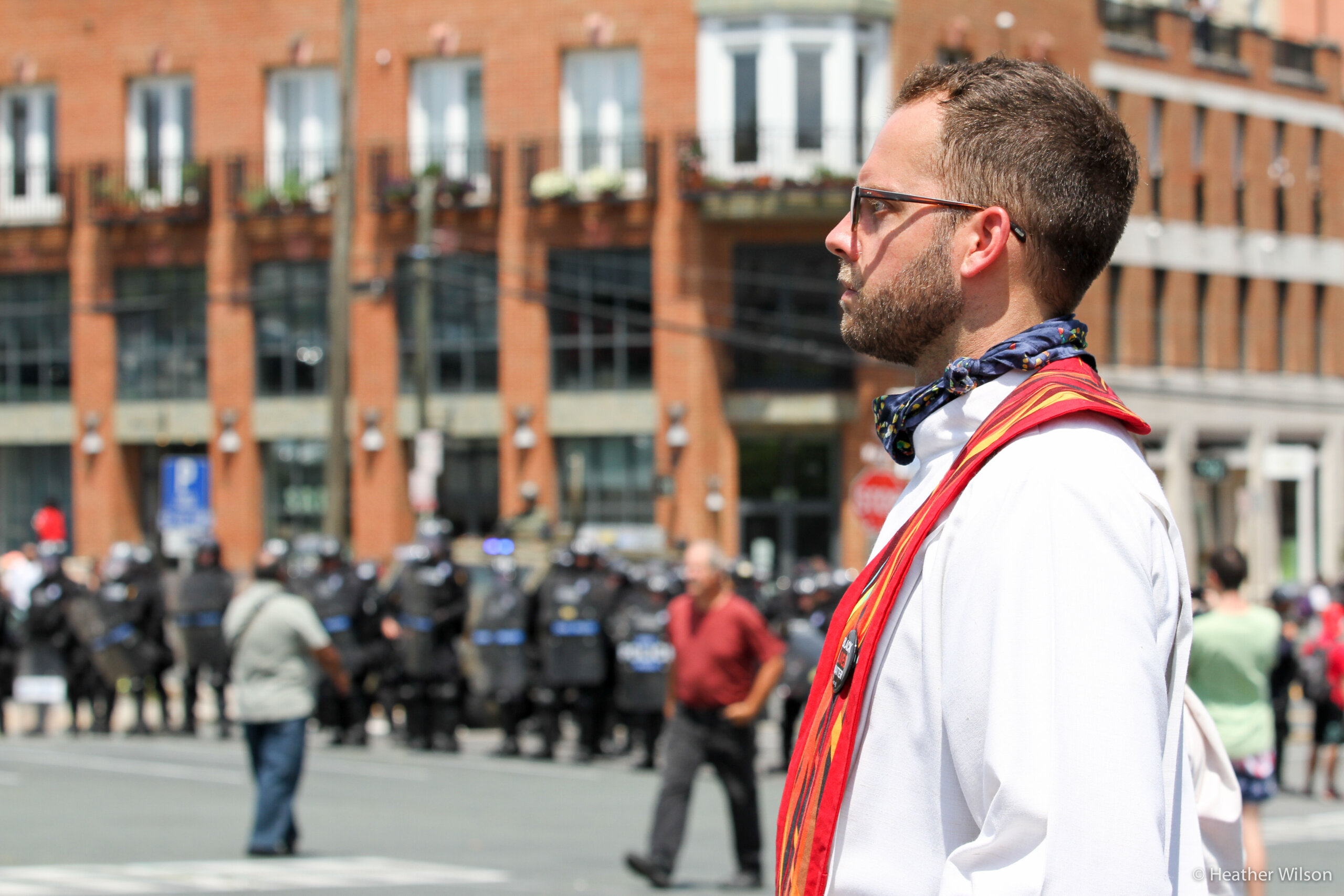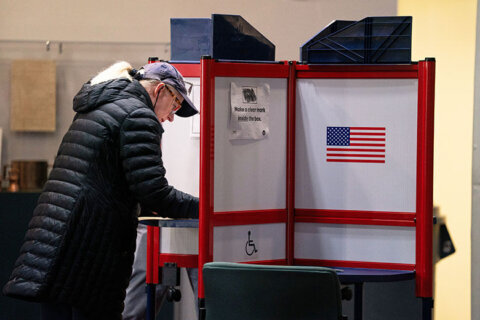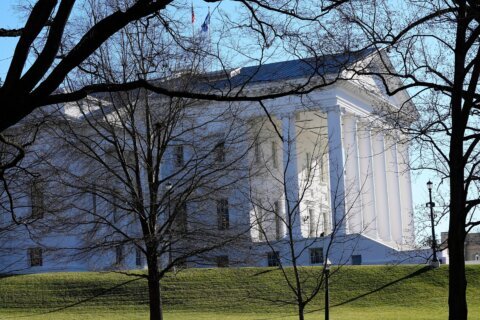
It has been five years since a deadly car attack during a white nationalist rally in Charlottesville, Virginia, but the trauma from what took place continues to haunt Rev. Seth Wispelwey, who was among those who helped the injured that day.
“It’s really hard to believe it’s been five years, in part because the experiences of that weekend and the whole summer really were so visceral,” Wispelwey, 41, said.
On Aug. 12, 2017, Wispelwey, a Charlottesville native, was steps away from where the attack occurred with members of Congregate Charlottesville, a group of clergy members who gathered to stand against the rally and its participants.
Wispelwey said the group was in the downtown area praying, when James Fields, a self-proclaimed admirer of Adolf Hitler, drove his car into a crowd of counter protesters.
“A woman ran up to me, just red-faced, saying people need help. I thought she needed help, when she says a car has just attacked somebody,” he recalled.
The clergy members then rushed to the intersection of Waters and Fourth streets in the city’s historic downtown to help. Once there, they saw injured people being attended to, including paramedics doing CPR on Heather Heyer, 32, who would lose her life in the attack.
Wispelwey said paramedics asked for help to make room, in order to get to people who were hurt.
“We were in our clergy garb, and we helped shepherd people out of the way,” he said.
While he was not physically hurt that day, Wispelwey said that what he saw and experienced have remained on his mind.
Now living in Tucson, Arizona, Wispelwey said he still has heightened feelings of anxiety and hyper vigilance while in public. Movies can also trigger those feelings.
“There was a car attack in the new Batman movie, and I love the new Batman movie, but I froze up bad in my theater seat when that happened,” he said.
Access to mental health resources to overcome the trauma is another additional struggle that he has heard from others who were in Charlottesville that day.
“We need help with ongoing medical bills and overcoming the trauma of those attacks,” Wispelwey said.
He was one of six plaintiffs in a lawsuit against the organizers of the rally. The jury awarded $26 million in damages last year. The case continues in the federal court system, as the rally’s organizers called on the court to amend or alter the judgment.
Wispelwey said he believes what happened in Charlottesville served as a motivator for people to become more active in the protests following the death of George Floyd in Minneapolis police custody in 2020.
“I think a lot of people were rightly alarmed and sobered by the explicit displays of neo-Nazi, neo-Confederate imagery alongside hundreds of MAGA and Trump flags and paraphernalia in the streets of Charlottesville,” he said.
He said more needs to be done to stand up against groups, such as the one behind the Unite the Right rally.
“It was really, really traumatizing and angering to see what happened on Jan. 6 at the U.S. Capitol in 2021. There was a lot of that footage that looked very similar to what we experienced in Charlottesville,” Wispelwey said.
On the fifth anniversary, he said he could have chosen not to discuss what he experienced that day and relive the events, but he said the story needs to continue to be told.
“We continue to tell this story of Charlottesville and revisit what we experienced because forgetting history is a sure sign that we may repeat it,” he said.








